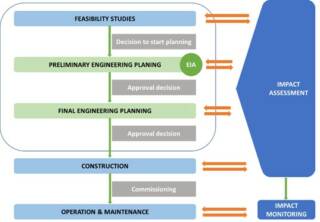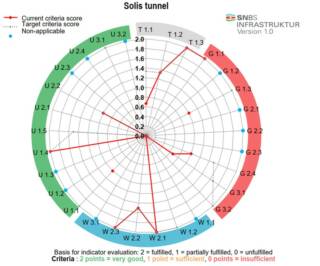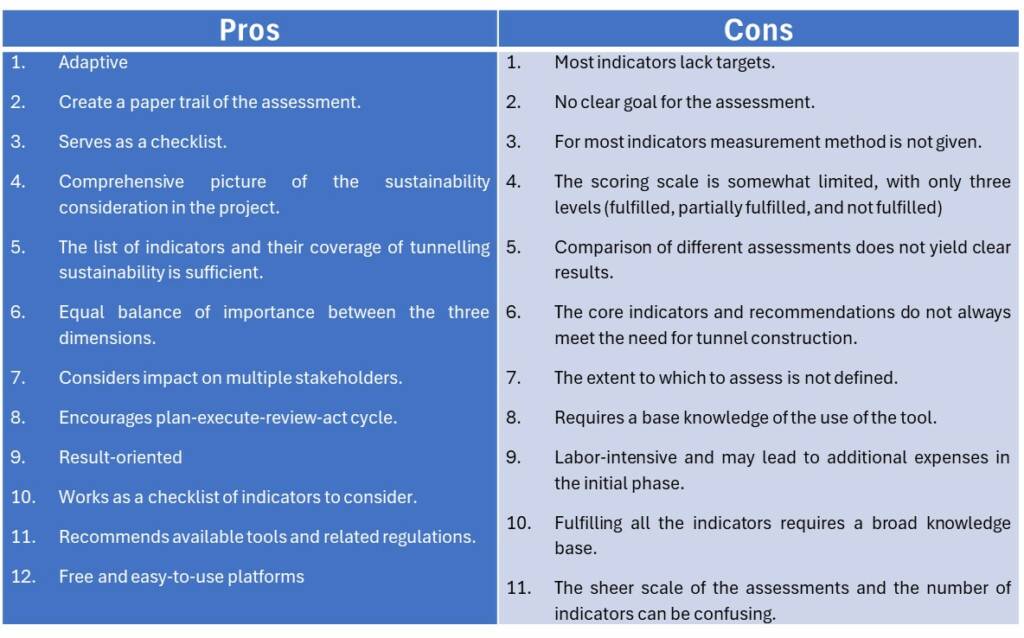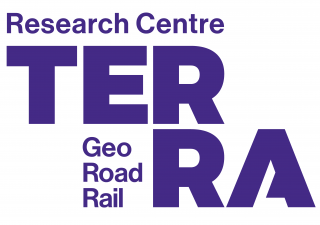Liisa Karlsson wrote her MSc thesis in Switzerland at the AFRY Zurich Tunnel Unit. What makes the thesis unusual is that three languages were used in the project: the thesis were written in English, the sustainability assessment tool and some of the source literature were in German, and Finnish was used in the guidance discussions.
What was the subject of your thesis and what were the main findings?

In my diploma thesis, I examine the sustainability impacts and sustainability assessment of tunnel construction, using the literature and the SNBS (Standards for Sustainable Building Switzerland) Infrastructure 1.0 tool developed in Switzerland. The aim of the work was to explore how sustainability can be seamlessly integrated into tunnel design.
Based on a literature review, the study identifies the factors affecting sustainability in tunnel construction, such as emission-intensive worksteps and materials, the methods used to assess them and possible ways to reduce their impact. Sustainability is a multifaceted issue where social impacts need to be considered in addition to technical and economic aspects. Measuring and assessing the different aspects of sustainability is challenging. A study of case projects using the SNBS Infrastructure 1.0 tool has shown that it is a useful method for supporting sustainability-informed decision making, but the analysis requires a significant amount of input data and resources.

Switzerland and Finland are both acknowledged world leaders in environmental issues. In my work, I have found that sustainability impact assessment of road projects is a legal requirement in Switzerland, while it is a strategic requirement in Finland. In Finland, sustainability is promoted through Green Deals, for example. Interviews with tunnel experts revealed that there is still much room for improvement. In Switzerland, for example, the law only requires sustainability to be taken into account in the planning phase of projects, but does not guarantee its implementation or define its overall weight in the plan. The interviews also highlighted the need for uniform guidelines for sustainability planning.
What were the most important things you learned in the process?
My main learning experiences during the process were the humility to ask for help, the ability to search for information and look at things from different perspectives, and the use of the SNBS tool for sustainability assessment. Deepening my knowledge of sustainability theories and tunnelling techniques was also important. Overall, the process helped me to discover and strengthen my own professional strengths and interests.
How did your studies help you write your thesis? What about employment?
My studies at the University of Tampere have provided me with a wide range of learning experiences. Courses at the university strengthened my technical theory in the field of construction, and these theoretical lessons were complemented by practical experience from my previous summer internships in civil engineering and rock construction. In the spring of 2023, I went on an Erasmus exchange to the University of Bologna in Italy, where I focused on courses in sustainable construction. The basic knowledge from these courses was a great help in writing my thesis. In addition, the Erasmus exchange encouraged me to work abroad and helped me to build an international network, which also helped me in Switzerland. My colleagues in Zurich were invaluable in helping me to understand the differences between countries and the details of tunnel construction.
What else would you like to highlight about your studies or thesis?
Working on a thesis abroad is an excellent opportunity to gain experience, develop language skills and build international networks. Of course, finding an internship requires initiative and perseverance. The main challenge in this process was to convince employers that doing a Finnish thesis abroad is a valuable contribution, even if you have no previous experience.
The Swiss are hard-working and ambitious, and the work ethic of my colleagues was truly admirable. When I left, my German was good enough for everyday conversation, but not good enough for full-time work. After six months, my language skills had improved significantly, although I was not yet completely fluent in German, let alone Swiss German. Switzerland is an exceptional country when it comes to languages: in the office you could hear different versions of German, but also Italian, Spanish, French, English and occasionally Finnish. Surrounded by all this change, the working days were quite tiring, but the friendliness of my colleagues made it possible for me to fit in very well in the multicultural AFRY office in Zurich.
What’s next after graduation?
Infrastructure projects are an interesting part of society from a sustainable development perspective, so I’m interested in continuing to combine civil engineering and sustainable development. I see a growing need for the combination of these skills in the sector in the future and I hope to be employed in a role where I can contribute to the sustainability of infrastructure projects. I also remain interested in building an international career.
Table 1: Strengths and weaknesses of the SNBS tool based on the case studies

Sources:
Finnish Transport Infrastructure Agency (2020). Tie- ja ratainfrastruktuurin elinkaariarvioinnin opas. (Guide for LCA of Road and Rail Infrastructure). Publications of the FTIA 64/2020. In Finnish, English abstract. Helsinki 2020. ISSN 2490-0745, ISBN 978-952-317-830-4.


